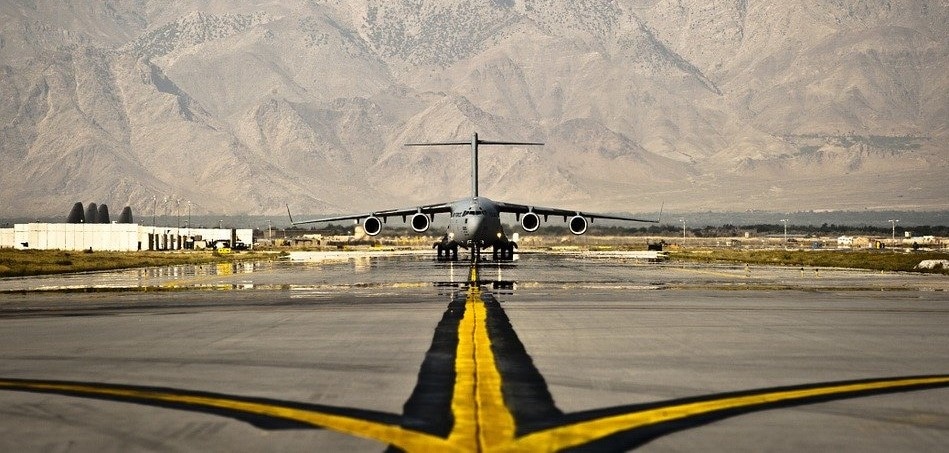The terrifying scenes from Kabul Airport can be seen as a symbol of a dysfunctional world order. People clinging desperately underneath the wings of an airplane speeding along the runway. Some are rescued while others perish. The images painfully visualize the end of a disastrous invasion and a world order in which power grows from the barrel of a gun or nuclear warheads.
The United States launched the “war on terror” and invaded Afghanistan following the terrorist attacks twenty years ago, on September 11, 2001. With the ruins of the collapsed World Trade Centre still smoking, George W. Bush announced that Osama Bin Laden and al-Qaeda were responsible and stated with what could have been a line from an Old Western movie: “we will smoke them out of their holes, we’ll get them running, and we’ll bring them to justice”.
The terrorist attacks were barbaric beyond comprehension and the rage expressed by President Bush is easy to understand. The victims had a genuine need of restoration and the United States needed the guilty to be held accountable.
The failure of the Security Council
Under international law, however, it is not for the victim to avenge the perpetrator. The main responsibility for maintaining international peace and security falls on the UN’s Security Council that alone may authorize the use of force under Chapter VII of the UN Charter.
The Security Council actually had put the Taliban regime under a sanctions regime, beginning in 1999, for their support of Bin Laden and al-Qaeda which was confirmed by a dozen resolutions thereafter. The Taliban nonetheless allowed the terror group to continue its operations in their territory.
While the Security Council swiftly condemned the 9/11 terror attacks, it did not authorize the US invasion. Instead, the United States invoked a right to self-defense which is included in the UN Charter as well, in Article 51. To this day, there are ongoing debates whether or not the invasion, at least initially, may have been justified on this basis. For sure, a permanent occupation was not.
The main problem may be seen in the Security Council and a dysfunctional system of collective security that is unreliable, inefficient and lacking accountability. The UN was unable and unwilling to rein in the Taliban. The United States had no respect for and no confidence in the UN and decided to act alone with a set of allies.
The war was directed against the Taliban government that protected the al-Qaeda terrorist network and had refused to hand over Bin Laden following 9/11. It took only a few months to oust the Taliban from power. On December 5, 2001, the Taliban even offered an unconditional surrender, to disarm and go back to their towns. The offer was ignored, however. In May 2011, under Barack Obama, terrorist leader Bin Laden was assassinated but it was not until 2014 that the war was formally ended. Subsequently, a reduced force was left in the country to support and train Afghan troops until the final withdrawal in 2020 and 2021.
Has justice been administered, as President Bush said 20 years ago? Hardly. According to the rule of law, everyone is equal before the law. Everyone, including terror suspects, has the right to have criminal charges investigated and tried in court. But even though some terror suspects have been convicted in court, the “war on terror” was mainly an expression of revenge rather than the rule of law.
In Guantanamo, terrorist suspects were tortured and detained indefinitely, without trial. Extensive drone strikes have also been carried out to kill terrorist suspects. According to estimates by the Bureau of Investigative Journalism, about 10,000 have been killed, including 1,500 civilians and 330 children. In addition to blatantly violating the principles of the rule of law, such attacks have the opposite effect on terrorism. The presence of drones indiscriminately terrorizes large sections of the population, thereby contributing significantly to anti-American attitudes and radicalization, thus creating a breeding ground for terrorism.
Terrorism and the need of a legitimate World Police
The fact that the Taliban now have taken Kabul and established a new government in Afghanistan illustrates in a tragic and clear way the dysfunctional character of a world order that is more reminiscent of the Old West than of the rule of law. The point here is not to criticize the United States – in a global order that lacks capabilities of law enforcement, it is not surprising that a powerful nation assumes a police-like role. But the United States is not a world police – but a super power driven by its own interests. Hence, a real world police force is absolutely necessary, a police that is independent of individual nations and instead subjected to a global public interest.
Although the UN has the potential to represent such a public interest it is essentially under control of the veto powers in the Security Council in so far matters of peace and security are concerned. To gain the required legitimacy, the UN needs to be democratized. The first step is the establishment of a UN Parliamentary Assembly that can be developed step by step into a second chamber, thus creating a UN with a world parliament with two chambers: the General Assembly representing states, and a directly elected second chamber representing world citizens. Then a legitimate world police force can be established which, together with other actors and under supervision of the parliament, can fight terrorism in a legally secure and democratic way and help eliminate its root causes, too.
Surely, it is difficult to spell out in detail how a world police could stop mega terrorist groups such as al-Qaeda. Arguably, however, transnational terrorism is to a large extent the result of a globalization process that creates inequalities and excludes people from political participation in matters that really concern them. With a world police that is accountable to a world parliament, the world population in general would be more fairly represented and thus regard the police force as protecting a genuine public interest, including their own sense of security. Especially, since the most disadvantaged peoples would then get a sense that their concerns were being addressed in a constructive way, one of the main causes of terrorism would be eliminated.





